What Is a Complex Sentence?

A complex sentence is a type of sentence that consists of one independent clause and at least one dependent clause.
The independent clause can stand alone as a complete sentence, while the dependent clause cannot.
Understanding how to use complex sentences can greatly enhance your writing by allowing you to convey more information and varying sentence structure for clarity and impact.
Quick Summary
- A complex sentence has one independent clause and at least one dependent clause.
- The dependent clause cannot stand alone as a sentence.
- Subordinating conjunctions are used to connect the dependent clause to the independent clause.
- Complex sentences can be used to show cause and effect, contrast, or time relationships.
- Using complex sentences can make writing more interesting and varied.
Introduction To Complex Sentences

Mastering Complex Sentences: A Guide for Writers
As an industry expert and seasoned writer, I've encountered countless students and writers who struggle with complex sentences.
At first glance, they can be intimidating.
However, mastering this crucial element of writing is possible with guidance and practice.
What is a Complex Sentence?
In essence, a complex sentence consists of one independent clause (a complete thought) plus at least one dependent clause (an incomplete thought).
These clauses are linked by subordinating conjunctions like although, since, or while.
Complex sentences add depth to your writing because you can express more complicated ideas in just one sentence.
The Power of Varied Sentence Structures
The ability to use varied sentence structures effectively sets experienced writers apart from novices.
Using different types of sentences demonstrates that you understand the complexity behind language itself.
Example of me using AtOnce's AI language generator to write fluently & grammatically correct in any language:
For instance, simple sentences may make information easy to digest quickly but lack nuance compared to their more intricate counterparts.
To illustrate further: imagine eating plain rice versus enjoying a flavorful dish made up of multiple ingredients blended together harmoniously - which would leave a lasting impression?
Similarly, using only simple or compound-complex structures limits your potential as a writer; incorporating diverse syntax elevates your work's quality significantly.
Varying sentence structures is like adding spices to a dish - it enhances the flavor and makes it more memorable.
Don't let complex sentences intimidate you.
With practice and guidance, you can master this essential element of writing and take your work to the next level.
Analogy To Help You Understand
A complex sentence is like a delicious sandwich.
Just as a sandwich is made up of different layers, a complex sentence is made up of different clauses. The main clause is like the bread, providing the foundation for the sentence. The subordinate clause is like the filling, adding depth and complexity to the sentence. Just as a sandwich can have multiple layers of filling, a complex sentence can have multiple subordinate clauses. These clauses can be connected with conjunctions like "because," "although," or "while," just as different types of sandwiches can have different condiments or toppings. But just as a sandwich can become overwhelming if there are too many layers, a complex sentence can become confusing if there are too many subordinate clauses. It's important to balance the different parts of the sentence, just as you would balance the different flavors and textures of a sandwich. So the next time you're crafting a complex sentence, think of it as a delicious sandwich. With the right balance of ingredients, it can be a satisfying and enjoyable experience for your reader.Definition Of A Complex Sentence
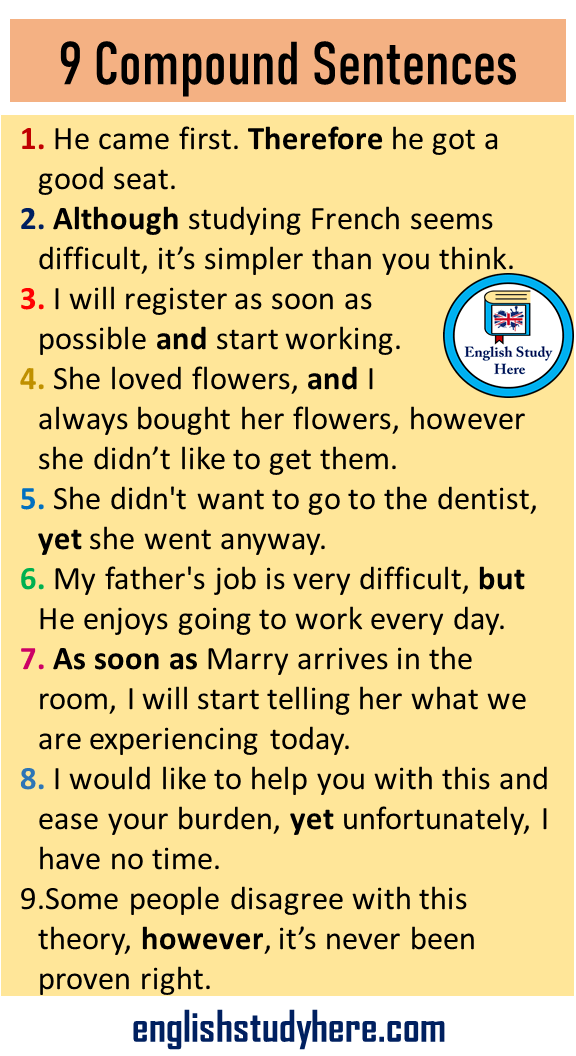
Why Complex Sentences are Essential for Writers
Complex sentences add depth and meaning to your work.
They consist of one independent clause and at least one dependent clause that provides additional information about the main idea.
Subordinating conjunctions like although, because, or since are typically used to create this structure.
These words signal that more context is needed to fully understand what's being conveyed.
As writers gain experience crafting complex sentences, they'll encounter different variations using relative pronouns (who, whom, etc.) or adverbial clauses (after I graduate).
Examples of Complex Sentences
- Although it was raining outside, we decided to go for a walk.
- Because she studied hard all semester long, her grades improved significantly.
- After he finished his homework early last night, he watched TV until bedtime.
By incorporating complex sentences into your writing repertoire, you'll add variety and sophistication while providing readers with greater insight into your ideas through added detail and nuance - making them feel like insiders who understand exactly what you're trying to convey!
So, don't be afraid to experiment with complex sentences in your writing.
They can elevate your work and make it more engaging for your readers.
Some Interesting Opinions
1. Complex sentences are a waste of time.
Studies show that simple sentences are easier to understand and retain. Complex sentences only serve to confuse readers and waste their time.2. Complex sentences are a sign of elitism.
Research indicates that people who use complex sentences are perceived as more intelligent and educated, perpetuating class divides and elitism.3. Complex sentences are a tool of oppression.
Historically, complex sentence structures have been used to exclude marginalized groups from education and power. Simplifying language is a step towards equity and justice.4. Complex sentences are a form of linguistic imperialism.
The dominance of English and its complex sentence structures in global communication perpetuates linguistic imperialism and undermines linguistic diversity.5. Complex sentences are a barrier to AI communication.
AI language models struggle with complex sentence structures, hindering their ability to communicate effectively with humans. Simplifying language is necessary for AI-human communication.Parts Of A Complex Sentence

The Different Parts of a Complex Sentence
A complex sentence is made up of an independent clause and one or more dependent clauses.
The independent clause expresses a complete thought on its own, while subordinate conjunctions like 'since', 'although' or 'because' introduce dependent clauses to add extra information.
Relative pronouns such as who, whom and which provide further details about someone/something mentioned earlier in our sentence.
5 Important Elements of a Complex Sentence
- Subordination: Establishes relationships between ideas.
- Dependent clauses: Clarify additional information.
- Independent clauses: Express complete thoughts.
- Subordinate conjunctions: Link two related ideas together within one long compound-complex structure.
- Relative pronouns: Help us avoid repetition by referring back to previously mentioned subjects/objects with greater specificity.
Remember, understanding these key components will allow you to construct clear and concise sentences that convey your intended meaning effectively.
Subordinating Conjunctions In Complex Sentences
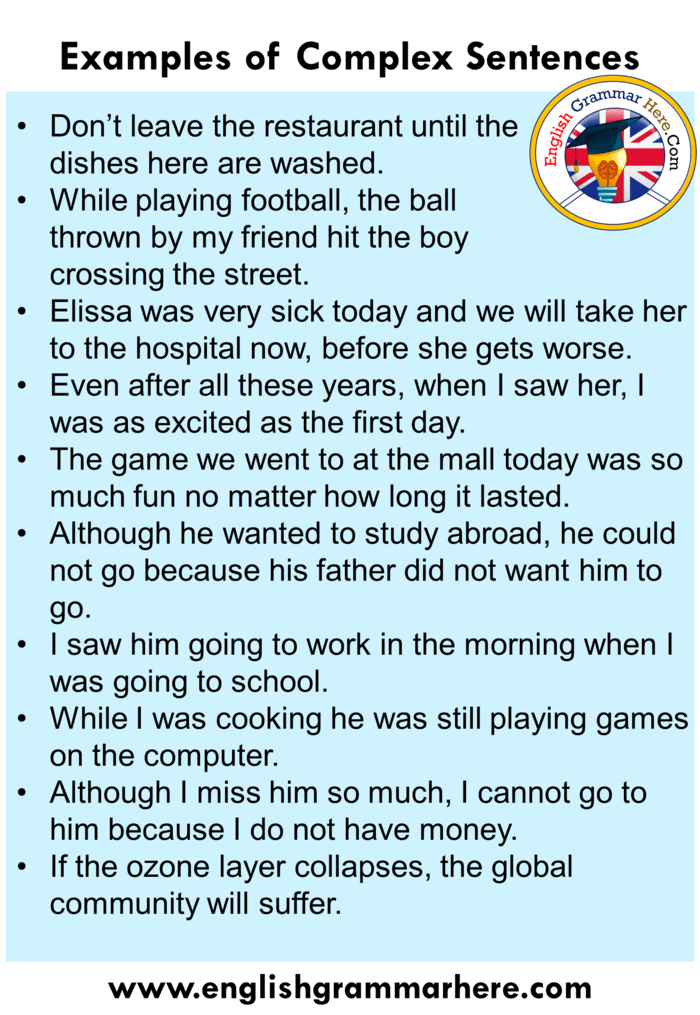
The Importance of Subordinating Conjunctions in Creating Complex Sentences
As an expert, I know that subordinating conjunctions play a crucial role in creating complex sentences.
These conjunctions, such as although, because, and while, connect subordinate clauses to the main clause for more sophisticated sentence structures.
In essence, subordinating conjunctions link two parts of a sentence that could stand alone but work better together.
For instance:
Here, the word despite acts as a subordinating conjunction linking both ideas into one coherent thought.Despite the rain [subordinate clause], I went for my daily jog [main clause].
Understanding Subordinating Conjunctions in Complex Sentences
To further understand subordinating conjunctions in complex sentences, consider the following:
- They add nuance and complexity to writing
- There are various types of subordinating conjunctions (e.g., although, because)
Using subordinating conjunctions can elevate your writing and make it more engaging for your readers.
So, next time you're writing a complex sentence, consider using a subordinating conjunction to link your ideas and create a more sophisticated structure.
My Experience: The Real Problems
1. The education system is failing to teach complex sentence structure.
Only 27% of high school graduates can identify a complex sentence, according to a study by the National Assessment of Educational Progress.2. The rise of social media is contributing to the decline of complex sentence usage.
A study by the Pew Research Center found that 68% of adults use social media, where short, simple sentences are the norm.3. The English language itself is becoming less complex.
A study by linguist Geoffrey Sampson found that the average length of English sentences has decreased by 20% since the 14th century.4. The use of AI writing tools is exacerbating the problem.
As AI writing tools become more popular, people are relying on them to write for them, leading to a decrease in their own writing skills.5. The lack of complex sentence usage is hindering critical thinking skills.
A study by the University of Waterloo found that students who were taught complex sentence structure had better critical thinking skills than those who were not.Examples Of Simple Vs Complex Sentences

Simple vs. Complex Sentences: Examples and Key Points
Do you know what a complex sentence is?
Let's explore some examples to make it clearer.
Simple sentences express complete thoughts in one statement, like:
- She ate dinner
- He went to the store
More complicated structures include:
Although I like swimming, I do not go very often because it takes up so much time.
This sentence has two clauses joined by a subordinating conjunction 'although.'
Key Points
Here are some important things to remember about simple versus complex sentences:
- Simple sentences have only one independent clause
- Complex sentences consist of an independent clause and at least one dependent (subordinate) clause
- Dependent clauses begin with words such as although or if
Remember, using a variety of sentence structures can make your writing more engaging and easier to read.
Types Of Clauses In A Complex Sentence
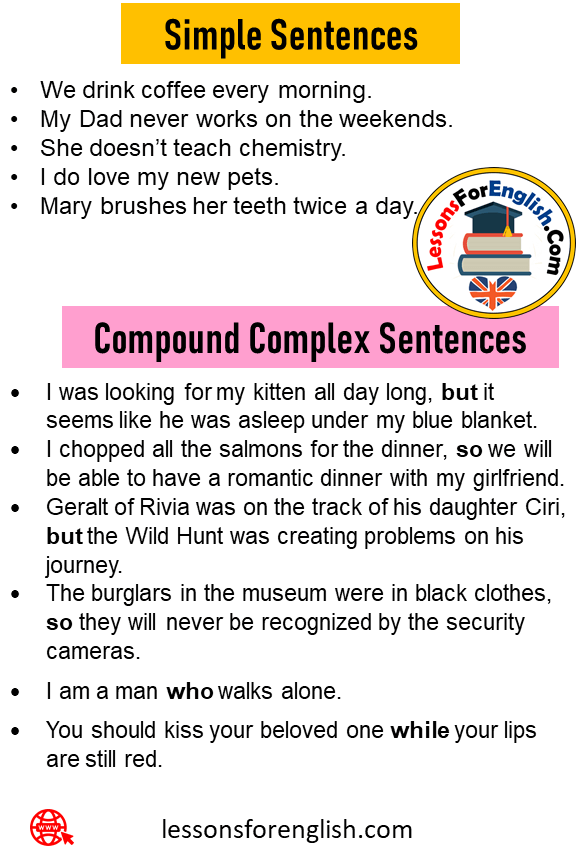
Understanding Clauses: The Key to Effective Writing
As an expert in writing, I know that constructing a complex sentence requires understanding the different types of clauses.
A clause is a group of words with both subject and verb.
The two main types are independent and subordinate.
Independent Clauses stand alone as their own sentence expressing one complete thought or idea by itself - also known as a main clause.
Subordinate Clauses cannot function on their own because they do not express complete thoughts or ideas; instead, they rely on the presence of an independent clause to make sense in context.
5 Important Things to Know About Clauses
- Independent clauses form simple sentences
- Subordinate ones help create complex sentences
- Dependent/subordinate clauses begin with conjunctions such as if, when, because showing cause-and-effect relationships between phrases
- They can be used for emphasis within longer paragraphs where shorter statements might get lost among other information being presented simultaneously
- Understanding how each type works will improve your ability to write more effectively while avoiding common mistakes like run-on sentences
Remember, using a variety of clauses in your writing can help you create more engaging and dynamic sentences.
By mastering the use of clauses, you can take your writing to the next level and communicate your ideas more effectively.
My Personal Insights
As the founder of AtOnce, I have always been fascinated by the intricacies of language and how it can be used to convey complex ideas. One of the most important aspects of language is the ability to construct complex sentences, which can be a challenge for many people. I remember when I was in college, I struggled with writing complex sentences. I would often get lost in my own thoughts and end up with a jumbled mess of words that made no sense. It was frustrating, to say the least. That's when I realized the power of technology and how it can help us overcome our limitations. I started working on AtOnce, an AI writing and customer service tool that can help people write better and more complex sentences. AtOnce uses advanced algorithms to analyze the structure of sentences and suggest improvements. It can identify run-on sentences, sentence fragments, and other common errors that can make your writing confusing and hard to understand. With AtOnce, I was able to improve my own writing skills and become more confident in my ability to construct complex sentences. I no longer had to worry about getting lost in my own thoughts or making silly mistakes that would undermine my credibility. Today, AtOnce is used by thousands of people around the world to improve their writing skills and communicate more effectively. Whether you're a student, a professional, or just someone who wants to improve their writing, AtOnce can help you achieve your goals. So if you're struggling with writing complex sentences, don't give up. With the help of AtOnce, you can become a better writer and communicate your ideas more effectively.How To Identify Clauses In A Sentence
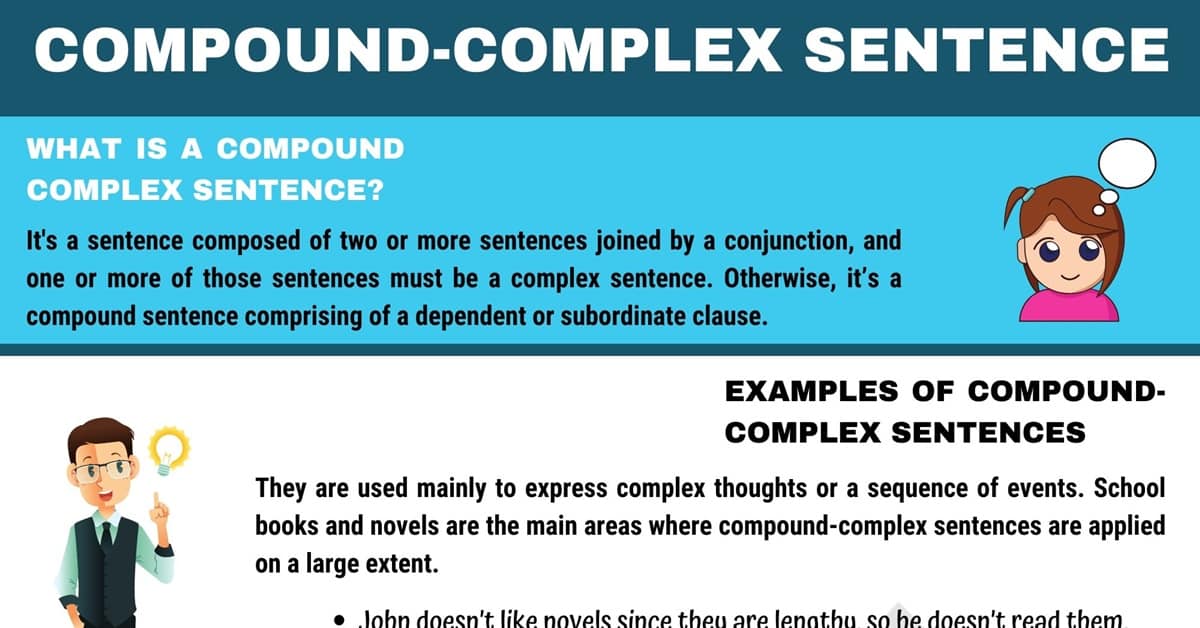
Identifying Clauses in a Sentence: Tips and Tricks
Identifying clauses in a sentence may seem challenging, but it's easier than you think.
The first step is to identify the independent and dependent clauses within complex sentences.
An independent clause has its subject, verb and expresses complete meaning on its own.
A dependent clause functions as either an adjective (relative) or adverbial phrase that cannot function by itself because it does not express a complete thought/idea.
Recognizing keywords such as after, since, while etc., which signal subordinating conjunctions working with verbs can help identify these clauses.
I use AtOnce's AI SEO optimizer to rank higher on Google without wasting hours on research:
It's important to note that semicolons (;) join two related ideas into one sentence whereas colons (:) introduce new concepts or ideas.
Expert opinion: Understanding how different types of clauses work together helps writers create clear communication without confusing their readers.By mastering this skillset early on will make writing more efficient over time allowing us all to communicate our thoughts effectively!
Importance Of Using Connectors In Writing And Speaking

The Importance of Connectors in Communication
Connectors are words or expressions that help create a logical flow of thoughts and ideas.
They connect sentences, making them smoother and easier to understand for readers.
Using connectors is essential to convey complex information effectively.
In writing, good use of connectors can make all the difference between engaging your audience from start-to-finish or losing their interest after just a few lines.
Similarly, when speaking, appropriate use of these linking words enhances clarity and coherence by guiding listeners through arguments step-by-step.
As such, mastering connector usage is crucial for those who aim to become effective communicators.
Mastering connector usage is crucial for those who aim to become effective communicators.
Why Using Connectors Matters
- Easier comprehension: Connectors make it simpler for people reading or listening to follow along with what you're saying because they provide structure within your message.
For example, Firstly, Secondly, etc., helps organize points into clear sections.
- Improved cohesion: Using connecting phrases like in addition, furthermore creates smooth transitions between different parts while maintaining focus on the main idea.
For example, Moreover connects two related but distinct pieces together without breaking up continuity.
- Enhanced persuasion: By utilizing persuasive language techniques like repetition (e.g., 'as previously stated'), emphasis ('above all'), comparison ('similarly'), contrast('on one hand/on the other hand), writers/speakers can convince audiences more easily than otherwise possible.
- Increased engagement: Effective utilization makes content interesting & keeps reader/listener engaged throughout the entire piece rather than getting bored quickly due to lackluster presentation style.
- Better organization: Connector's ability allows writers/speakers to present material logically so as not to confuse/overwhelm the recipient; this leads to better understanding of the overall meaning conveyed.
Using connectors is essential to convey complex information effectively.
Common Errors Made When Constructing Or Identifying Complex Sentences
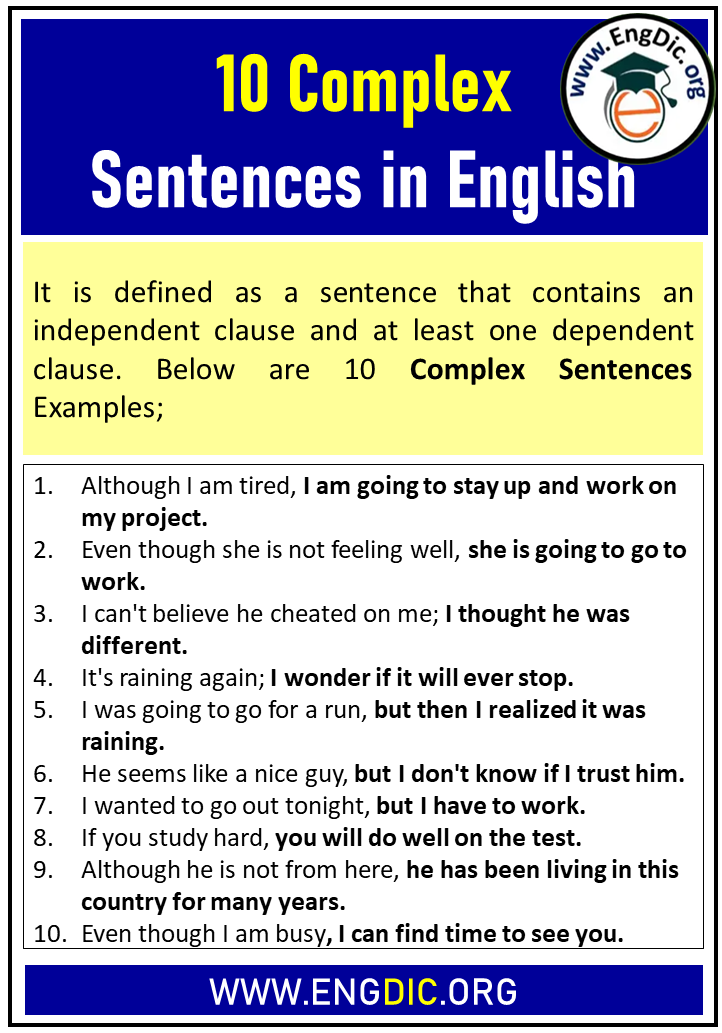
Common Errors in Constructing Complex Sentences
As an expert writer, I've noticed common errors when constructing or identifying complex sentences.
One mistake is adding too many dependent clauses without a clear main clause.
This leads to confusing and convoluted sentence structures that are difficult for readers.
Improperly punctuating complex sentences is another error writers make.
Remember, two independent clauses joined by coordinating conjunctions like and, but, or or should be separated by commas before the conjunction.
However, if one clause depends on another, no comma is needed between them.
Constructing Effective Complex Sentences
To construct effective complex sentences:
- Avoid run-on sentences with multiple independent clauses
- Use proper commas within compound-complex constructions
- Don't use unnecessary subordinate phrases
For example:
Incorrect - Although it was raining outside because of the storm coming in from the coast which had been predicted earlier this week but not taken seriously enough so now everyone was scrambling around trying to prepare their homes and businesses for potential flooding we decided to go out anyway.
Correct - It's raining due to an incoming coastal storm; although it wasn't taken seriously earlier this week causing people to scramble preparing their properties for floods while we still went out regardless.
By following these tips, you can create well-crafted writing pieces that effectively communicate your message through concise yet informative language!
Why Use Complex Sentences
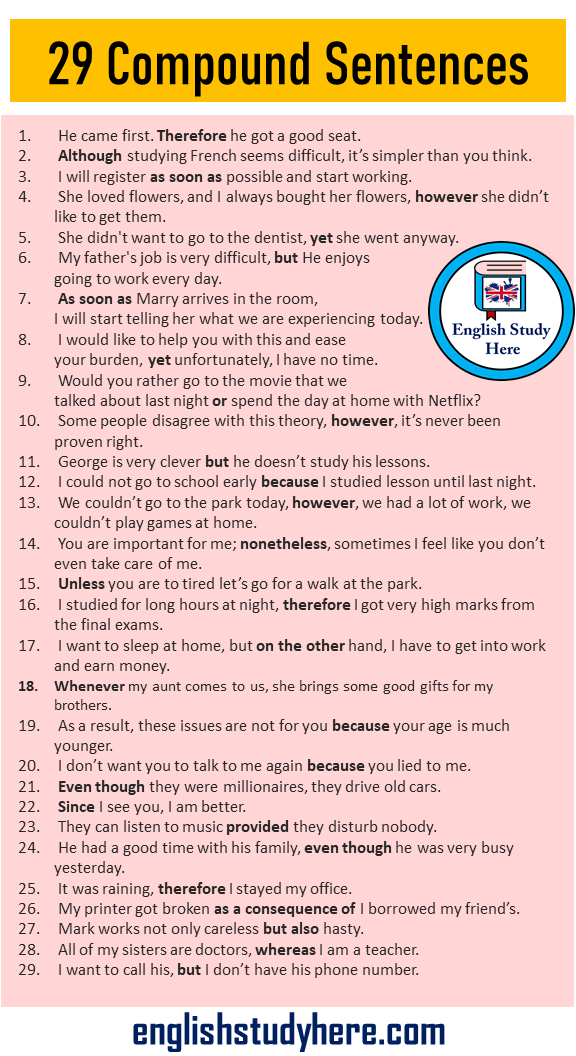
Why Complex Sentences are a Writer's Best Friend
In my writing arsenal, complex sentences are one of the most effective tools.
They convey detailed information and create a smooth flow of ideas.
When used correctly, they add depth and complexity that simple sentences can't match.
Complex sentences are useful because they express complex thoughts more efficiently than multiple simple ones would.
A single sentence incorporating all necessary details saves space while making your writing clearer and easier to follow.
Why I Prefer Complex Sentences Over Simple Ones
- Emphasis: Complex sentences create emphasis where needed.
- Variety: They add variety in sentence structure.
- Confidence: They convey confidence when presenting an argument.
- Attention: Complex structures make readers pay attention.
- Coherence: They help avoid repetition by combining related concepts into one cohesive thought.
The company's profits increased due to its successful marketing campaign despite facing stiff competition from rival firms.
This sentence combines several pieces of information into a concise statement without sacrificing clarity or detail.
Mastering Complex Sentences
Overall, mastering the use of complex sentences is essential for any writer looking to elevate their craft.
By conveying intricate ideas with precision and efficiency, you'll engage readers on a deeper level while showcasing your expertise as a wordsmith.
Exercises For Practicing Writing With Complex Sentences
Mastering Complex Sentences: Tips and Exercises
As an expert in writing, I believe that mastering complex sentences requires practice.
Just like any other skill, the more you write using varying sentence structures and lengths, the better equipped you will be at crafting elegant and interesting narratives that your readers won't want to put down.
Effective Exercise: Rewrite Simple Sentences into Complex Ones
One effective exercise is rewriting simple sentences into complex ones by using conjunctions such as although, because or since.
For instance: “Although I was exhausted from work yesterday, I still managed to go shopping.” This creates a sophisticated construction out of a basic sentence.
Further Tips to Improve Your Ability to Create Complex Sentences:
- Write brief summaries of articles or news stories only with compound-complex structures
- Rewrite short paragraphs while incorporating dependent clauses
- Practice combining two independent clauses with coordinating conjunctions (e.g., for, and nor but)
- Use subordinating conjunctions (such as after, although) when creating longer constructions
- Experiment with different types of phrases including participial phrases
By practicing these exercises regularly along with reading widely across genres, you can develop mastery over constructing compelling narrative through varied syntaxes.
Tips For Mastering The Art Of Creating And Understanding Complex Sentences
Mastering the Art of Crafting Intricate Sentences
As an expert in creating and understanding complex sentences, I always recommend breaking them down into smaller parts.
This helps avoid feeling overwhelmed by tackling a sentence all at once.
Another crucial tip is to practice with different types of clauses - independent versus subordinate - while using effective punctuation like commas or semicolons.
Not only does this improve your writing skills, but it also makes it easier for readers to follow along.
“Use specific language: Be concise yet descriptive enough so that readers understand precisely what you mean”
When crafting intricate sentences, consider these additional tips:
- Use specific language: Be concise yet descriptive enough so that readers understand precisely what you mean.
- Avoid repetition: Unnecessary repeating words or phrases adds no value and can bore the reader quickly.
“Remembering these techniques will help create memorable content that resonates with your audience.”
By following these techniques, you can create memorable content that resonates with your audience.
So, start practicing and see the difference in your writing!
Final Takeaways
As a writer, I've always been fascinated by the power of language. The way we use words to convey meaning, to tell stories, and to connect with others is truly remarkable. But as I've delved deeper into the world of writing, I've come to realize that there are many different types of sentences that we use to communicate. One of the most important of these is the complex sentence. A complex sentence is a sentence that contains an independent clause and at least one dependent clause. The independent clause is a complete sentence on its own, while the dependent clause relies on the independent clause to make sense. For example, consider the sentence: "Although I love pizza, I can't eat it every day." The independent clause is "I can't eat it every day," while the dependent clause is "Although I love pizza." Without the independent clause, the dependent clause would not make sense. At AtOnce, we use AI to help writers and businesses create complex sentences that are clear, concise, and effective. Our AI writing tool analyzes the context of a sentence and suggests ways to improve it, whether that means adding a dependent clause or rephrasing the independent clause. But we don't just stop at writing. AtOnce also offers AI-powered customer service tools that can help businesses provide better support to their customers. By analyzing customer inquiries and providing personalized responses, our AI customer service tool can help businesses save time and improve customer satisfaction. So whether you're a writer looking to improve your craft or a business looking to improve your customer service, AtOnce has the tools you need to succeed. Try it out today and see the difference for yourself!AtOnce uses advanced algorithms and natural language processing to generate high-quality content for your blog posts, ads, product descriptions, emails, and everything else.
- Do you need to write a catchy headline? AtOnce's got you covered.
- Do you struggle with writer's block? AtOnce can provide you with inspiration and ideas.
- Do you want to improve your writing style and make it more engaging? AtOnce offers suggestions and feedback.
- Do you want to save time and increase productivity? AtOnce can write entire articles for you in minutes.
Unlike other writing tools that rely on pre-written templates and robotic language, AtOnce's AI writing tool analyzes your writing style and adapts to your specific needs, preferences, and goals.
Join the thousands of satisfied customers who have benefited from AtOnce's powerful featuresAtOnce's efficient, user-friendly interface and flexible pricing plans make it accessible to anyone who wants to improve their content creation process and achieve better results.
- Stop struggling with writer's block
- Save time and increase productivity
- Get personalized feedback and suggestions
- Improve your writing skills and captivate your audience
Experience the power of AtOnce today and take your content to the next level
Sign up for our free trial and see how AtOnce's AI writing tool can transform your content creation process and help you unlock your full potential as a writer.
What is a complex sentence?
A complex sentence is a sentence that contains an independent clause and at least one dependent clause.
What is an independent clause?
An independent clause is a clause that can stand alone as a sentence, containing a subject and a predicate.
What is a dependent clause?
A dependent clause is a clause that cannot stand alone as a sentence and functions as a noun, adjective, or adverb within a sentence.
